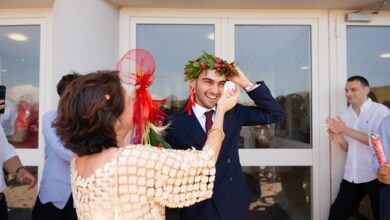The Art of Pre-Season Rotation: Method to the ‘Madness’?

Ah, pre-season. That glorious, often perplexing period where every fan transforms into a master tactician, scrutinizing every substitution and formation tweak as if it holds the key to the coming season’s silverware. It’s a time of optimism, speculation, and the occasional head-scratching decision from the dugout. Tonight, Nottingham Forest embark on a journey to Austria, poised to lock horns with Sturm Graz in what, on paper, might appear to be just another pre-season friendly. Yet, with news filtering through that Sean Dyche has opted for a rather significant shake-up, making a hefty seven changes to the starting XI, the narrative surrounding this fixture instantly shifts.
Seven changes isn’t merely a tactical tweak; it’s a statement. It’s a clear indication that Dyche is not just looking for fitness and rhythm, but actively exploring the depths of his squad, testing new combinations, and perhaps, sending a very deliberate message to his players. What exactly can we infer from such a wholesale shift, and what does it mean for Forest as they meticulously prepare for the demanding campaign ahead? Let’s delve into the likely motivations behind this bold team selection and what it signals for the Reds.
The Art of Pre-Season Rotation: Method to the ‘Madness’?
For many, pre-season friendlies exist in a strange limbo. The results often mean little in isolation, yet the performances within them can set the tone for individual players and the collective squad. Managers typically juggle multiple objectives: building match fitness, integrating new signings, refining tactical systems, and crucially, assessing every player on their roster.
Sean Dyche, known for his pragmatic approach and meticulous planning, isn’t one to make changes for the sake of it. A seven-player rotation suggests a multi-faceted strategy at play. Firstly, there’s the undeniable need for comprehensive fitness building. Not every player is at the same stage in their physical preparation, and spreading minutes across the squad ensures everyone builds up endurance safely, minimizing the risk of early-season injuries.
Secondly, it’s an invaluable opportunity for tactical experimentation. With so many changes, Dyche can test different partnerships across the pitch – in central defence, midfield pivots, or attacking trios. Do certain players link up better than others? How does the team’s shape hold when different personnel are deployed in key roles? These are questions best answered in competitive, if friendly, environments, away from the intense pressure of league points.
Unlocking Squad Depth and Hidden Gems
Perhaps one of the most compelling reasons for such a significant reshuffle is the desire to truly assess squad depth. The Premier League is a relentless marathon, not a sprint, and success hinges not just on the starting XI, but on the quality and readiness of those waiting in the wings. By rotating so heavily against Sturm Graz, Dyche is essentially giving players who might not be regular starters a golden opportunity to stake their claim.
This includes emerging academy talents who’ve been training with the first team, eager to impress and prove they belong at this level. For them, a start in a European friendly against decent opposition is a massive chance to catch the manager’s eye. It also includes established professionals who might be fighting for a starting berth or returning from injury, needing crucial minutes to regain their sharpness and confidence. Every touch, every tackle, every pass in a game like this is a chance to push their case.
Who Benefits Most? Decoding Dyche’s Selections
When a manager makes this many changes, it’s never a random dice roll. Each decision is calculated, designed to yield specific insights or benefits. While we don’t have the specific names of the seven players brought in, we can infer the types of players who are likely to gain the most from this opportunity.
Firstly, the aforementioned young prospects. Imagine being a teenager or a player in your early twenties, having worked your way through the academy system, and suddenly you’re handed a start in a first-team fixture, even a friendly, on foreign soil. This isn’t just about gaining experience; it’s about handling the pressure, demonstrating your tactical understanding, and showing that you can perform alongside seasoned professionals. Their energy and hunger will be palpable.
Then there are the players who were perhaps on the periphery last season, or those who endured injury layoffs. For them, these minutes are vital. Getting back into the rhythm of competitive football, building match sharpness, and proving their fitness levels are paramount. It’s a chance to remind everyone, including themselves, of their capabilities and their value to the squad.
Conversely, the players who are rested or step aside for this fixture are also part of the plan. Their absence could be due to workload management, protecting them from unnecessary strain, or simply giving them a breather after a heavier training load. It’s a strategic rotation that keeps the entire squad fresh and engaged, understanding that everyone will have a role to play when the serious business begins.
Beyond the Line-Up: Forest’s Season Ahead
This match against Sturm Graz, with its drastically altered line-up, is far more than an isolated event. It’s a thread in the larger tapestry of Nottingham Forest’s pre-season preparations, offering a valuable glimpse into Sean Dyche’s overarching philosophy and his vision for the upcoming campaign. What messages is he sending, and what does this tactical gambit tell us about Forest’s ambitions?
It screams competition. Dyche is ensuring that no player can rest on their laurels. By demonstrating that he’s willing to make such significant changes, he’s reinforcing the idea that starting places are earned, not given, and that every player in the squad must consistently perform at their highest level. This healthy internal competition can only benefit the team, pushing everyone to greater heights.
It also speaks volumes about Dyche’s commitment to building a resilient, adaptable squad. The Premier League demands tactical flexibility and the ability to absorb injuries or dips in form from key players without a significant drop-off in quality. By testing various combinations and individual capabilities now, Dyche is preparing Forest for the inevitable challenges that lie ahead. He’s trying to forge a team that isn’t overly reliant on a select few, but rather a cohesive unit where every player understands their role and can step up when called upon.
A Proving Ground for What’s to Come
Ultimately, the scoreline tonight against Sturm Graz will quickly fade into memory, but the lessons learned from this heavily rotated Nottingham Forest line-up could prove invaluable. For Dyche, it’s an opportunity to gather critical data on his players, their fitness, their tactical understanding, and their potential contributions. For the players themselves, it’s a moment to seize, to impress, and to solidify their place in the manager’s plans. As the dust settles on this Austrian encounter, one thing will be clear: every decision made, every minute played, is a step closer to Nottingham Forest’s readiness for the season to come. The stage is set, the pieces are being moved, and the anticipation for kick-off on opening day only grows stronger.





